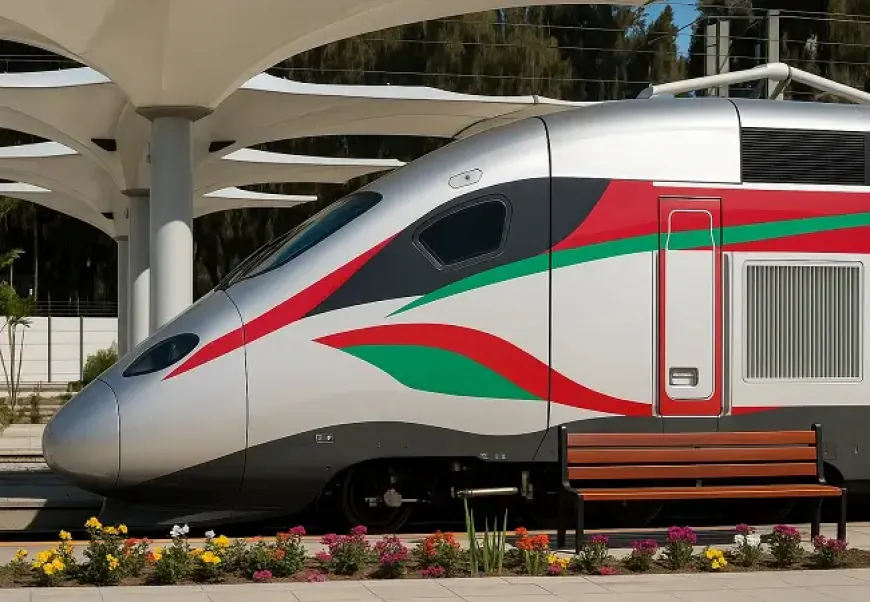Alstom Secures €150M Kénitra-Settat Rail Signaling ERTMS Contract
Alstom signs €150 million contract to equip Kénitra-Settat line with ERTMS Level 1 system, preparing infrastructure for future high-speed rail.

The French transport giant, leading a consortium with Ineo Rail and Ineolum, signs a strategic €260 million agreement to equip the Kénitra-Settat link with cutting-edge ERTMS Level 1 signaling technology, preparing infrastructure for Morocco's future high-speed rail lines.
Updated on September 26, 2025
Accelerating Mobility in Morocco: A Strategic Contract
Alstom, leading a consortium with Ineo Rail and Ineolum, has signed a strategic contract worth approximately €260 million for the Kénitra-Settat rail link, with Alstom's share totaling €150 million. This initiative represents a critical component of the main lines modernization program, strategically preparing infrastructure for the future high-speed line between Kénitra and Marrakech.
The project marks a technological leap by deploying Alstom's Onvia Control system, based on the international standard ERTMS Level 1. This advanced signaling solution represents a major investment in the Kingdom's railway future.
The Technological Leap: Deploying ERTMS Level 1
Understanding ERTMS Level 1 (European Rail Traffic Management System)
ERTMS Level 1 constitutes the international standard used for rail traffic management, integrating unified signaling and control systems that enhance safety and interoperability. In ERTMS Level 1 systems, drivers receive information and instructions delivered directly to their cabs through real-time data from lineside transponders that relay signal status.
Alstom will deploy its Onvia Control technology, the result of over 30 years of railway signaling expertise. Alstom's global authority is confirmed with more than 300 ETCS projects completed and 25,000 Onvia units in service worldwide.
Key Benefits of the New Signaling System
The integrated system deployment targets several immediate operational improvements:
- Enhanced Safety: Strengthening circulation safety standards
- Improved Punctuality: Optimizing scheduling and timetable adherence
- Increased Capacity: Up to 40% additional capacity on existing infrastructure
- Traffic Fluidity: Smoothing railway traffic flows
- Reduced Carbon Footprint: Contributing to greener network operations
Contract Scope and Consortium Responsibilities
Comprehensive Deliverables on the Kénitra-Settat Line
The €260 million operation covers design, supply, and commissioning of a complete integrated system.
- Core Systems Delivered by Alstom (€150 Million): Signaling and Onvia Control System deployment
- Systems Delivered by Ineo Rail and Ineolum: Telecommunications, cabling, and electric power supply components
Preparing for Morocco's High-Speed Future
This project proves crucial for modernizing Morocco's existing major lines. The technology upgrade accompanies expansion plans and prepares infrastructure for the highly anticipated Kénitra-Marrakech high-speed connection.
This modernization fits within the national railway development strategy, positioning Morocco as a regional transport hub in North Africa. ERTMS compatibility ensures interoperability with European and international standards.
Alstom's Century-Long Commitment and Expertise in Moroccan Rail
Historical Footprint and Proven Success
Alstom has maintained presence in Morocco's rail sector for a century [to be verified]. Major contributions include:
- Citadis Tramway Delivery (Rabat and Casablanca systems)
- Prima Locomotive Supply
- Avelia Train Provision used on Africa's first high-speed line
The French manufacturer operates a dedicated industrial site in Fès for producing Mitrac transformers and cables, demonstrating solid local industrial presence.
A Shared Ambition for Advanced Mobility
This contract's importance reflects shared commitment toward mobility advancement. Mehdi Sahel, General Director of Alstom Morocco, emphasizes the "common ambition to advance mobility in Morocco through cutting-edge technological solutions".
This contract confirms Alstom's role as a key partner in continued expansion and modernization of Morocco's rail network, prefiguring future regional developments.


 TrainsNews
TrainsNews 





